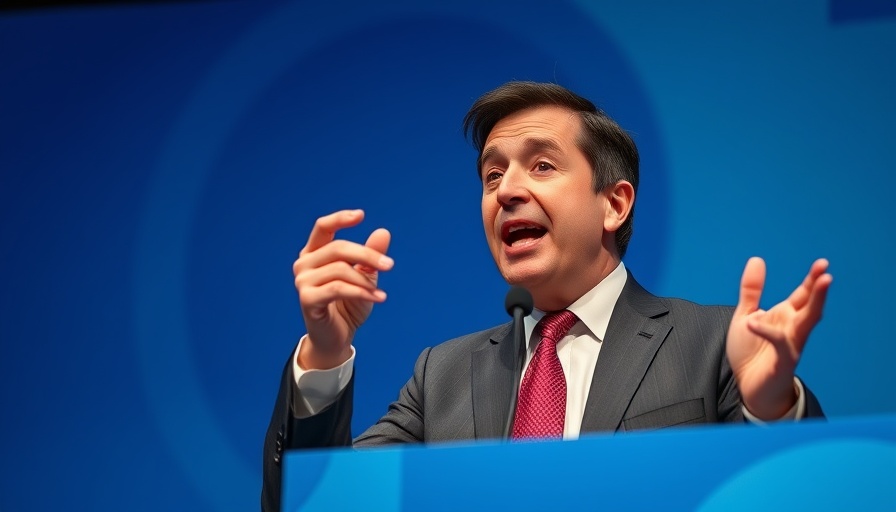
Trump’s Absence and Vance’s Role: What it Means for G20
In a significant move, U.S. Vice President JD Vance will be representing President Donald Trump at the upcoming G20 Summit in Johannesburg, November 2025. This decision comes on the heels of a turbulent political backdrop, where Trump's administration has distinctly distanced itself from South Africa since his return to the White House in 2025. This early announcement indicates not only a shift in international diplomacy from one of negligence to an active engagement through the vice president but also speaks volumes about the administration's approach to global relations—a move that has garnered mixed responses from local political figures.
South Africa's Diplomatic Landscape: Challenges Ahead
Minister Ronald Lamola's welcoming remarks shine a light on the complexities of South Africa's current diplomatic landscape. Despite previous tensions, Lamola emphasizes the importance of interaction at the G20, hinting at South Africa's aspiration to maintain relevance within significant international discussions. However, the minister's expectations of ambitious outcomes from the summit might face obstacles due to Trump’s absence, reflecting a perceived reluctance about full U.S. engagement in pressing global issues such as economic collaboration and climate action.
The Broader Implications of U.S. Attendance at the G20
The G20 Summit will not only focus on the immediate agenda but also serve as a stage for the broader implications of U.S.-South Africa relations. Vance’s presence could signal a chance for South Africa to demonstrate its evolving role within the BRICS bloc and the African Union, juxtaposed against the backdrop of U.S. leadership aimed at reasserting its global influence. As the G20 addresses key items like state capture, economic reform, and climate policies, Vance’s insights could significantly impact discussions on these issues, particularly given the U.S.'s complex relationship with global consensus on such matters.
Long-Term Political Ramifications in South Africa
Given the political landscape leading into the next elections in 2024 and 2026, the outcome of the G20 discussions could influence voter sentiments and party strategies. The Coalition government—comprising the African National Congress (ANC), the Democratic Alliance (DA), and others—will be keeping a close eye on how Vance engages with other world leaders. They aim to leverage international policies to bolster local initiatives around economic freedom, gender-based violence, and youth unemployment, as these issues remain top priorities among voters.
The Future of U.S.-South Africa Relations
As the world looks toward the G20 Summit, the dynamics of U.S.-South Africa relations could chart a new course depending on the outcomes at this meeting. Lamola’s anticipation of constructive dialogue is shared among those who see this as a pivotal moment—whether to strengthen ties against a backdrop of other pressing global challenges or further entrench the divides created in recent political dialogues. For many South Africans, the hope lies in an evolving narrative where the voices of opposition parties, social movements, and grassroots engagements inform and energize the public around a unified agenda.
Conclusion: Urging Action and Civic Engagement
As South Africa moves toward the G20, citizen engagement and perspectives on foreign influence and governance are essential. Understanding the implications of Vance's attendance can help voters determine how these international conversations shape domestic policy. South Africans are encouraged to remain active in pressing issues surrounding state capture, economic empowerment, and service delivery, ensuring that their voices resonate not just domestically but also within the global community. This engagement matters not only for the success of the G20 but for crafting a future that aligns with citizens’ values and aspirations.
 Add Row
Add Row  Add
Add 




Write A Comment